-
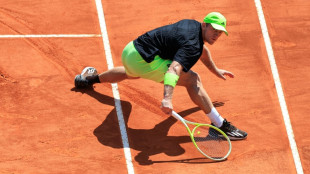 Draper dumped out of Monte Carlo Masters by Davidovich Fokina
Draper dumped out of Monte Carlo Masters by Davidovich Fokina
-
Scheffler, McIlroy seek fast start as 89th Masters tees off
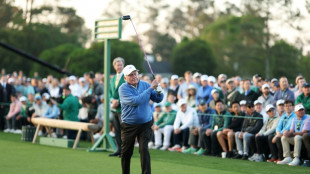
-
 EU halts counter-tariffs but no pause in US-China trade war
EU halts counter-tariffs but no pause in US-China trade war
-
Australian schoolboy Gout Gout runs sub-10 second 100m --- twice
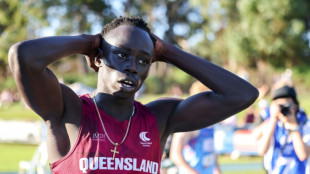
-
 Scarlett Johansson to star at Cannes as festival unveils line-up
Scarlett Johansson to star at Cannes as festival unveils line-up
-
Stock markets soar as Trump delays painful tariffs

-
 Trump tariffs weigh on Germany as institutes cut forecasts
Trump tariffs weigh on Germany as institutes cut forecasts
-
US and Russia exchange prisoners

-
 Japan top yakuza group promises 'no more trouble'
Japan top yakuza group promises 'no more trouble'
-
Champion Martin eyes Qatar return as 'bitter' Marc Marquez seeks redemption
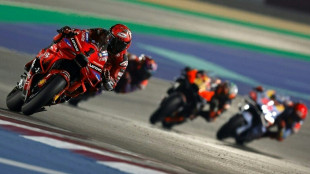
-
 The US citizens still held in Russian prisons
The US citizens still held in Russian prisons
-
US-Russian ballet dancer Ksenia Karelina freed by Moscow: Rubio

-
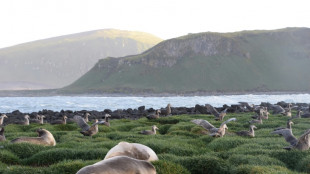 Not just penguins on Antarctic islands hit by Trump tariffs
Not just penguins on Antarctic islands hit by Trump tariffs
-
Canada PM says Trump's pause on tariffs a 'welcome reprieve'
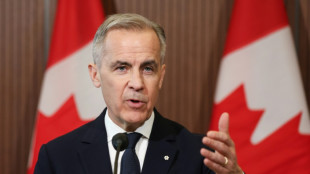
-
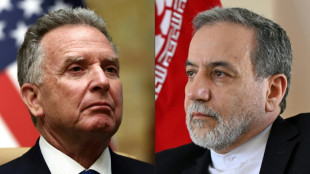 Witkoff and Araghchi: the men leading US-Iran nuclear talks
Witkoff and Araghchi: the men leading US-Iran nuclear talks
-
Stocks zoom higher as Trump delays painful tariffs

-
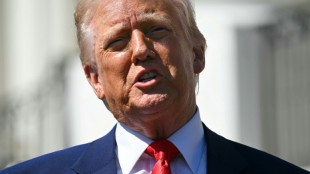 China urges US to meet 'halfway' as markets rocket on Trump tariff pause
China urges US to meet 'halfway' as markets rocket on Trump tariff pause
-
Vatican releases image of Charles, Camilla meeting pope
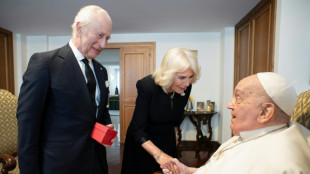
-
 Waratahs' McKellar rules out becoming next Wallabies coach
Waratahs' McKellar rules out becoming next Wallabies coach
-
Taiwan's TSMC says first quarter revenue up 42 percent

-
 Rybakina leads Kazakhstan to BJK Cup victory over Australia
Rybakina leads Kazakhstan to BJK Cup victory over Australia
-
Vietnam says it will start trade talks with United States

-
 Expo 2025 in Japan: five things to know
Expo 2025 in Japan: five things to know
-
Japan's World Expo touts unity, and algae, in turbulent times
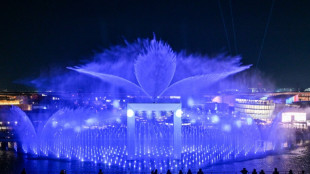
-
 Trump's tariff pause gives market relief, but China trade war intensifies
Trump's tariff pause gives market relief, but China trade war intensifies
-
Papua New Guinea lifts ban on forest carbon credits
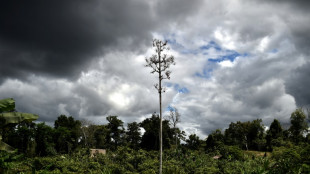
-
 AI surge to double data centre electricity demand by 2030: IEA
AI surge to double data centre electricity demand by 2030: IEA
-
Scheffler, McIlroy seek fast start in hunt for history at Masters
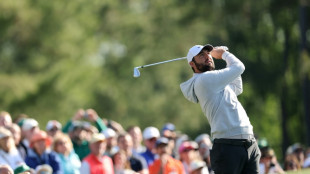
-
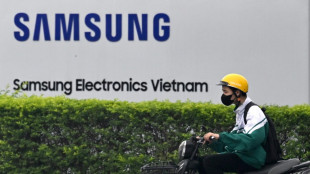 Samsung under pressure as US tariffs rattle South Korean economy
Samsung under pressure as US tariffs rattle South Korean economy
-
Munster wary of 'chaotic' Bordeaux-Begles in Champions Cup quarter-final

-
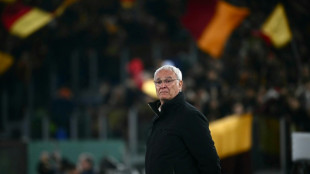 Ranieri eyeing Champions League for Roma before derby swansong
Ranieri eyeing Champions League for Roma before derby swansong
-
Verstappen out to silence McLaren in the battle of Bahrain
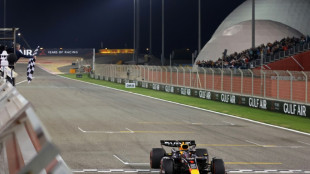
-
 Asian stocks crack higher as Trump delays painful tariffs
Asian stocks crack higher as Trump delays painful tariffs
-
Cannes to unveil film selection under pressure over industry abuse

-
 Messi scores twice in Miami's frantic comeback over LAFC
Messi scores twice in Miami's frantic comeback over LAFC
-
Swimmers get medal boost with new events added for 2028 Olympics
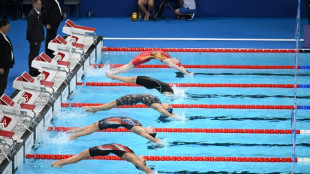
-
 Companies keen to start deep-sea mining off Norway
Companies keen to start deep-sea mining off Norway
-
US House votes to limit judges' injunction power
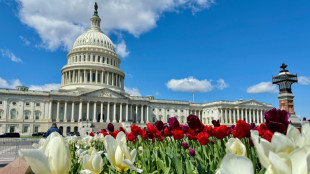
-
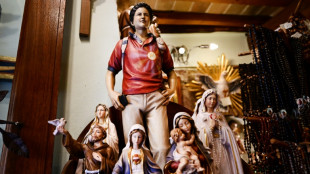 Pilgrims in Italy flock to tomb of first millennial saint
Pilgrims in Italy flock to tomb of first millennial saint
-
China consumer prices slump for second straight month: data

-
 Tearful Doncic scores 45 on return to Dallas as Lakers clinch playoff spot
Tearful Doncic scores 45 on return to Dallas as Lakers clinch playoff spot
-
Hamas leadership operating behind veil of secrecy

-
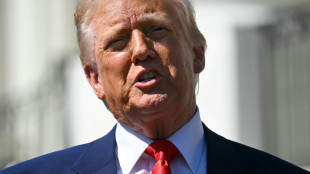 Trump stuns with tariff backtrack but hikes China rate to 125%
Trump stuns with tariff backtrack but hikes China rate to 125%
-
Messi scores twice in Miami's three goal comeback over LAFC
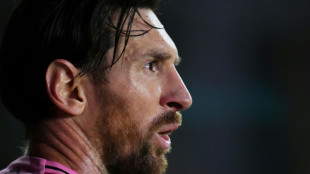
-
 Amazon satellite launch scrubbed due to weather
Amazon satellite launch scrubbed due to weather
-
Art of the deal? How Trump backed down on tariffs
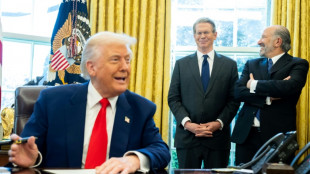
-
 Verde(R) Announces New Biobased, Biodegradable PolyEarthylene(R) Film Grades
Verde(R) Announces New Biobased, Biodegradable PolyEarthylene(R) Film Grades
-
Berkeley SkyDeck Demo Day to Showcase Unprecedented Momentum in AI

-
 Classover to Hire 2,500 U.S. Teachers to Power Operations and Curate Proprietary AI Training Dataset
Classover to Hire 2,500 U.S. Teachers to Power Operations and Curate Proprietary AI Training Dataset
-
CBD Life Sciences Inc. (CBDL) Company Online Sales Up 500%

Russia's "Alliance" in the Balkans is sinking
Over the past decade, Russia has prided itself on maintaining strong relationships with several Balkan nations. This bond, often rooted in shared Slavic heritage, Orthodox Christian traditions, and historical ties, was once perceived as a strategic platform for Moscow to expand its influence in Southeast Europe. Yet recent developments suggest that Russia’s alliance in the Balkans is beginning to unravel, leaving the Kremlin facing new diplomatic challenges in a region long considered sympathetic to its interests.
Eroding Political Influence
Serbia has historically been Russia’s most steadfast partner in the Balkans, buoyed by a sense of cultural kinship and mutual geopolitical interests. However, Belgrade has gradually moved closer to the European Union, seeking membership and deepening economic cooperation with Western nations. While Serbia has not openly broken away from Russia, analysts point to its growing emphasis on European integration as a signal that Belgrade may be distancing itself from Moscow’s orbit.
Montenegro, once firmly in Russia’s sphere of influence, joined NATO in 2017. This move was seen by many as a major blow to the Kremlin’s strategic goals in Southeast Europe, undermining the perception that the region was decidedly pro-Russian. The country’s pivot toward Western defense structures continues to stand as a stark reminder that Kremlin-friendly governments can rapidly realign when broader interests are at stake.
Economic Factors and Energy Ties
One of Moscow’s most effective levers of power in the Balkans had been its role as a key energy supplier. Gas agreements and oil contracts bolstered Russia’s foothold, offering local governments reliable—if sometimes politically fraught—access to affordable energy. Yet Europe’s ongoing efforts to diversify its energy supply and reduce dependence on Russian resources have started to weaken Moscow’s sway.
In Serbia, plans to link up with alternative pipelines from neighboring countries could mitigate Russia’s longstanding energy dominance. Meanwhile, Bosnia and Herzegovina, another state traditionally viewed as within Russia’s sphere, is actively discussing more diversified energy routes. These shifts dilute Russian economic clout and further complicate Moscow’s capacity to maintain a strong presence in the region.
Shifting Public Opinion
While Russia has long relied on cultural diplomacy to foster goodwill among Balkan citizens, recent surveys suggest a notable shift in public sentiment. The economic and social benefits of closer ties with the European Union—such as access to scholarships, visa-free travel, and foreign direct investment—have made many Balkan citizens view Brussels as a more appealing partner than Moscow.
Moreover, Russia’s military actions on other fronts have prompted anxiety among certain Balkan populations who fear that aligning with Moscow could strain relationships with the West and hinder their own EU accession hopes. In societies where European integration is a near-universal aspiration, it is becoming increasingly challenging for pro-Russian narratives to maintain broad popular support.
Geopolitical Ramifications
Russia’s diminishing influence in the Balkans highlights a broader global trend: competing blocs vying for regional sway, with the EU, NATO, and other Western entities making decisive inroads. For the Kremlin, losing ground in Southeast Europe carries political and strategic consequences that ripple beyond the region. By the same token, Balkan states searching for reliable alliances may shift even more decisively toward Western institutions.
Diplomatic experts note that unless Russia reevaluates its strategy—perhaps by offering new forms of economic or security cooperation—it risks being sidelined in a part of Europe it once considered a reliable staging ground for extending its influence.
Conclusion
As Serbia edges closer to EU membership, Montenegro cements its position in NATO, and other Balkan countries explore alternative partnerships, the solid ties that once bound the region to Moscow are fraying. Historical and cultural connections remain, but for many Balkan governments, the imperatives of economic development and European integration are taking precedence over maintaining a robust alliance with Russia. Unless Moscow adapts its approach, it may find its influence in Southeast Europe reduced to a shadow of its former strength, marking the end of an era in Balkan geopolitics.

EU: Netherlands causes headaches in Brussels

Israel in the fight against the terror scum of Hamas

Italy: Storm Ciarán brings disastrous record rainfall

What remains of the EU leader's visit to Kiev?

Gaza: Hamas terrorists responsible for expulsion

Vice-Chancellor Habeck: Empty words without action?

Israel: More bodies, weeks after Hamas terror attack
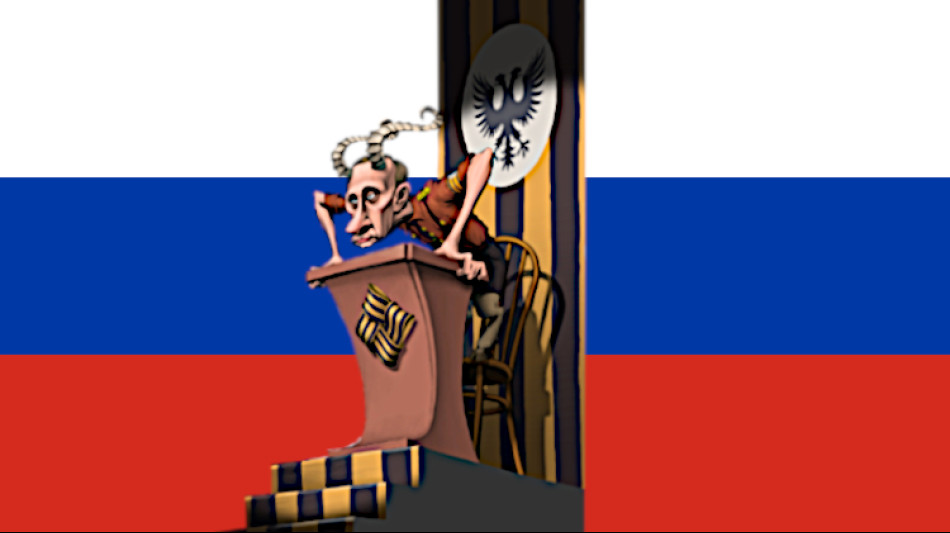
Israel politician threatens russian terror state on Russian TV

EU: No agreement on 10-year extension for glyphosate

Ukraine: When will the world stand up to Russian terror?

Warming: Methane levels rising, is this nature's answer?



